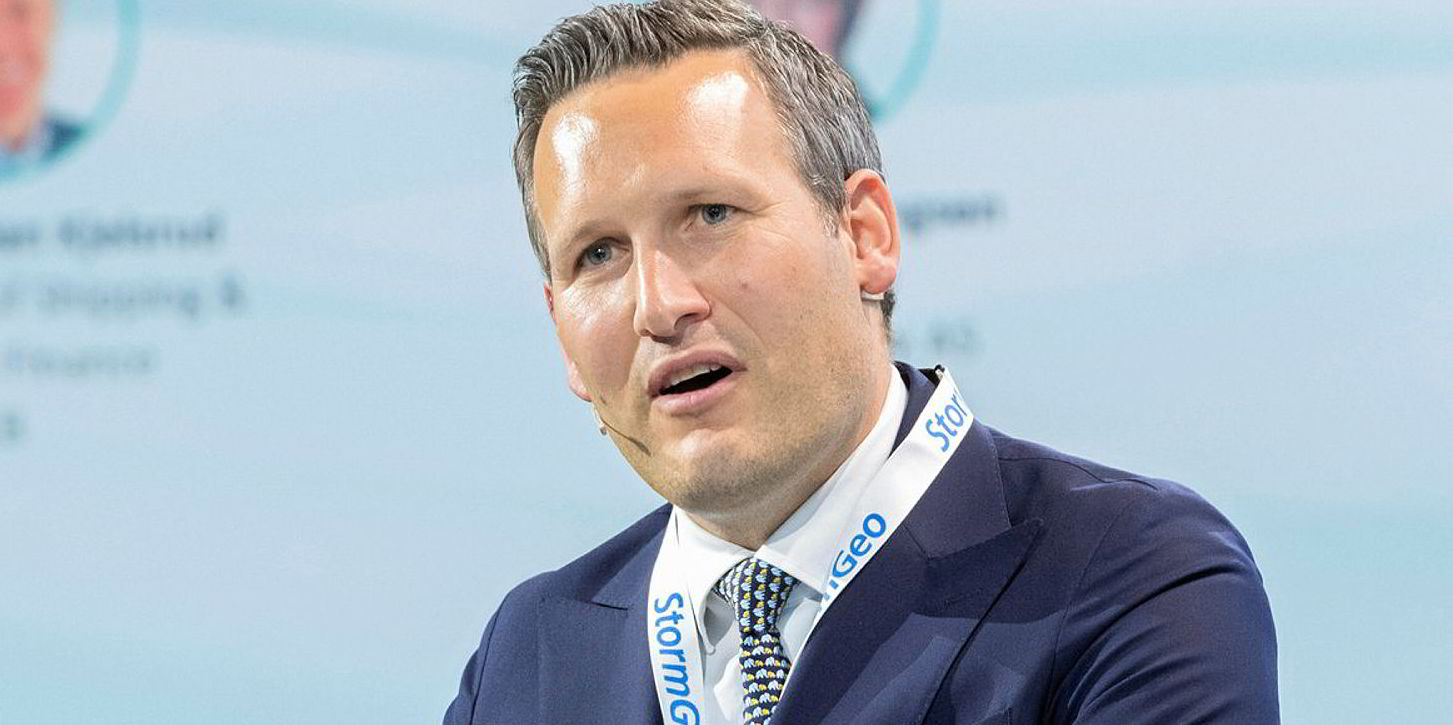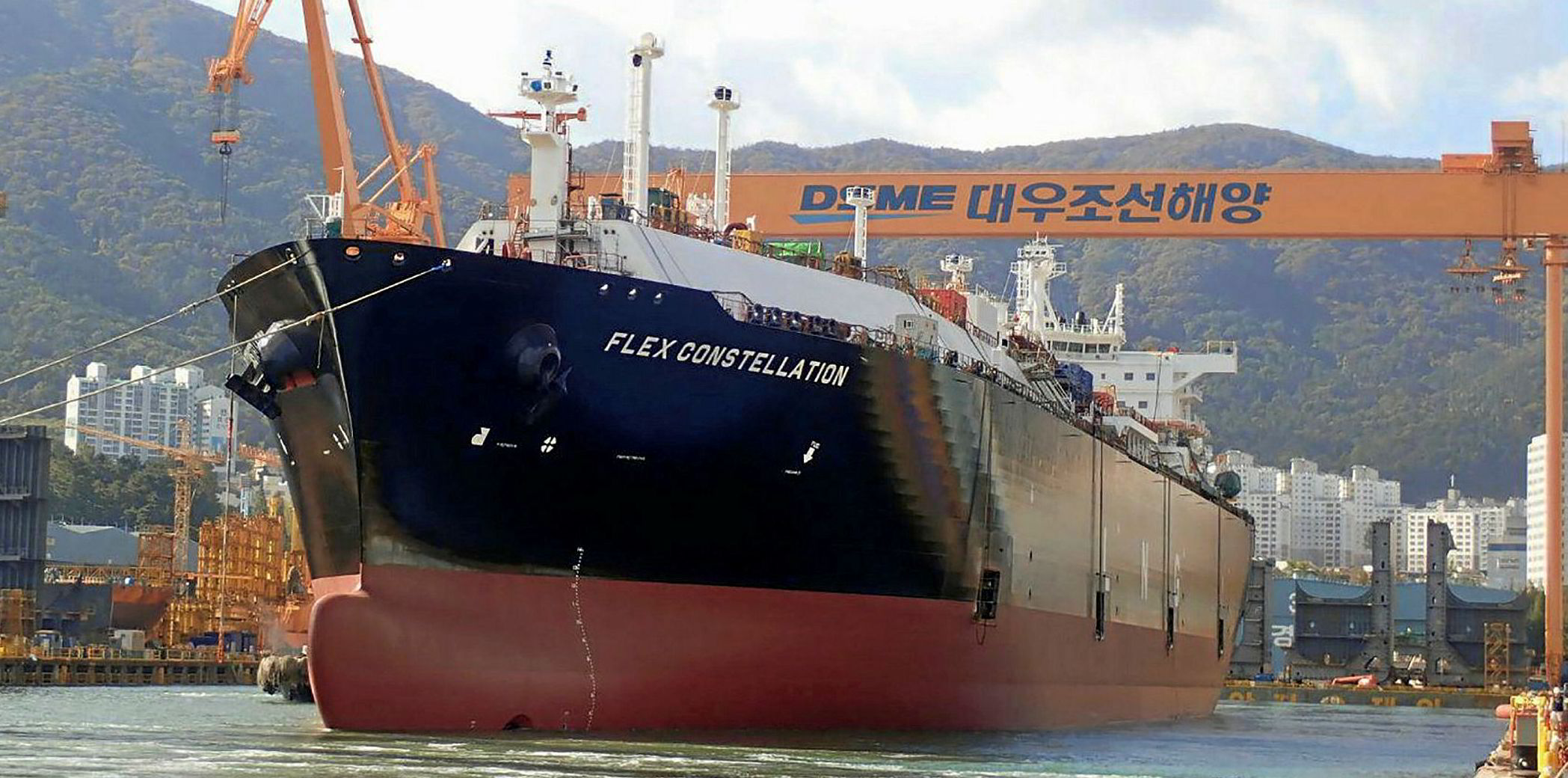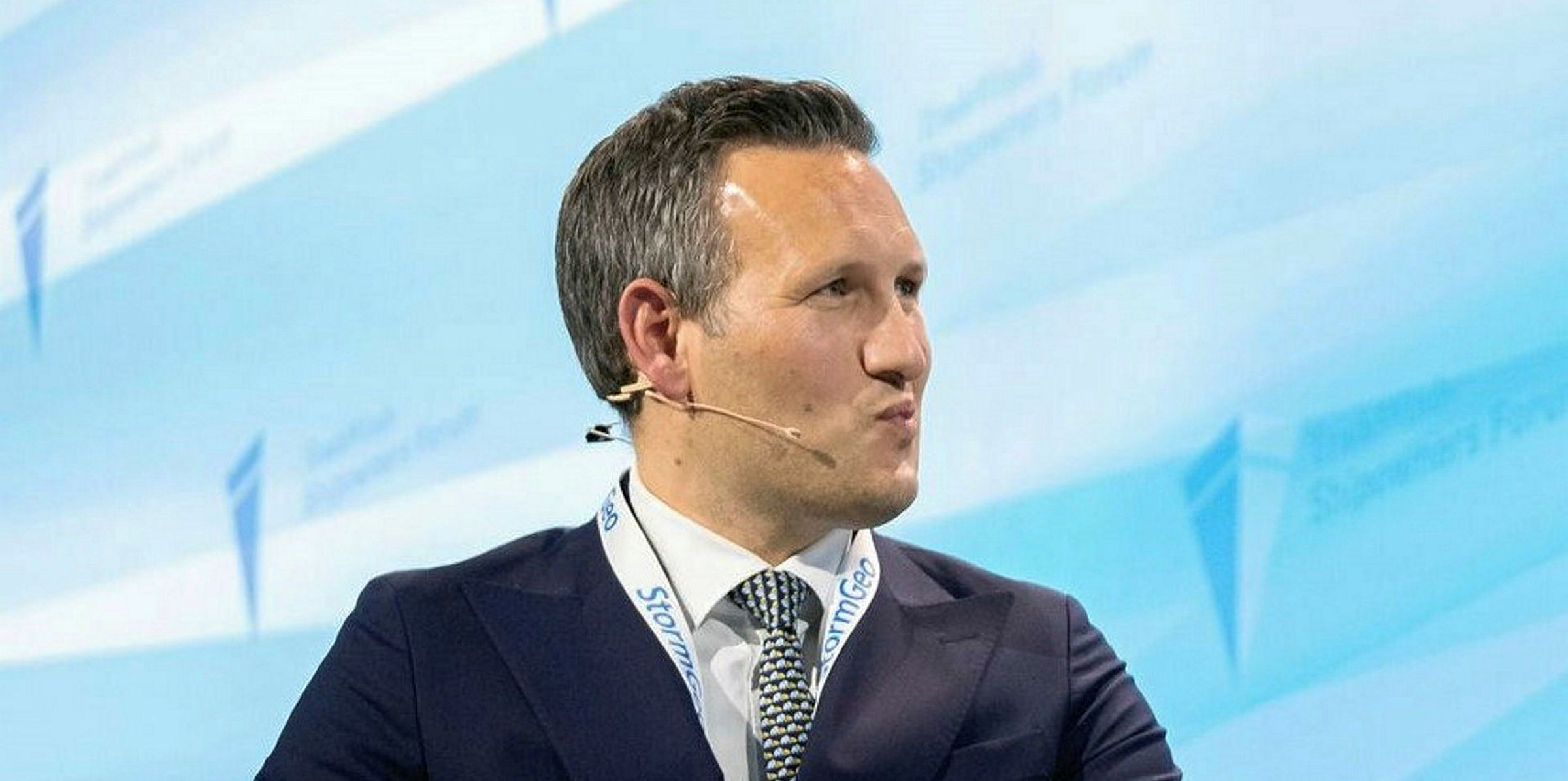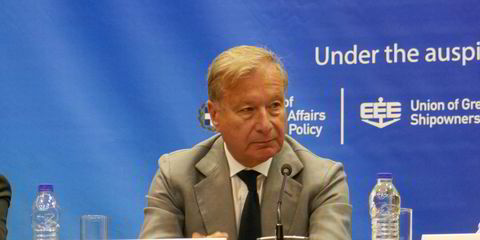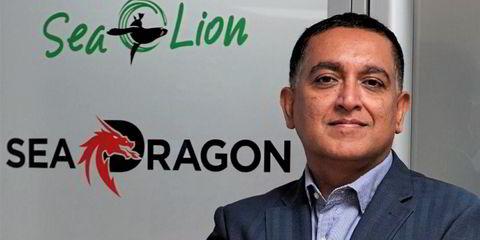John Fredriksen-controlled Flex LNG will shift its focus to securing more longer-term business as the delivery of its newbuildings ramp up.
Speaking in a results briefing, chief executive Oystein Kalleklev explained that the company has so far predominantly focused its attention on spot business for its emerging fleet of vessels.
He said Flex would typically charter ships on long term when the spot price is higher than period price.
While the first half of 2019 has been “disappointing” for LNG carriers, he said the market is “heating up now” with spot prices for vessels rebounding to $75,000 per day. But the one-year time-charter equivalent remains higher than the spot price, he added.
“We will try to add period to backlog once the spot goes above that for period charters and as we add more ships,” he said.
Kalleklev said that by the end of this month Flex will have six vessels on the water with the delivery of the 173,400-cbm Flex Courageous.
Also Tuesday, brokers were reporting sistership newbuilding Flex Constellation as fixed for spot business out of the Middle East, as the vessel abruptly changed direction and headed north.
Kalleklev said Flex has no vessels available for charter until the fourth quarter.
At present during the last three months of this year the company is logged as having one vessel on time-charter with Enel and a second on a one-year period hire with Chevron.
Kalleklev said the company has five LNG newbuildings due for handover in 2020 with a further two to scheduled to join the fleet the following year, adding that it is more challenging to trade 11 or even 13 vessels spot.
Kalleklev insisted that this is not a change of direction for Flex. “It has always been our strategy to add backlog to the portfolio as we are building a fleet and as the market is becoming tighter with spot prices at higher levels,” he said.
The CEO said Flex’s vessels are better suited to longer term business because of their size.
But he added: “Our strategy is to focus on the right contract as the marker is expected to become tighter.”
Kalleklev said the LNG shipping market is not quite tight ahead of the winter and is expected to trend upwards in the fourth quarter.
He said Flex expects to have in-house management in place for its LNG carrier fleet by the fourth quarter which puts the company in a better position for securing longer term employment.
